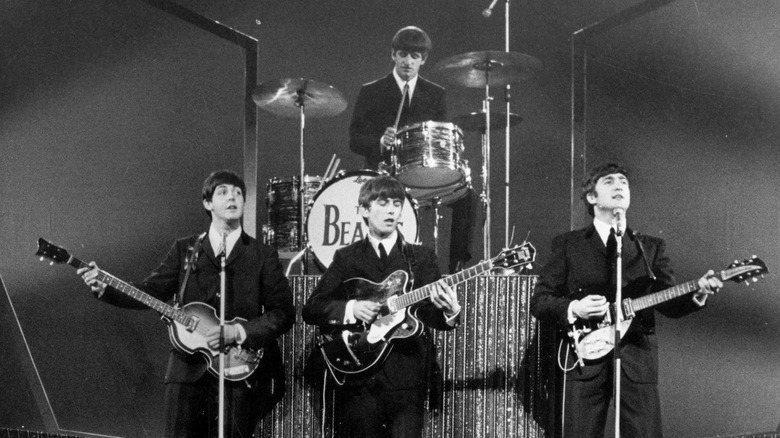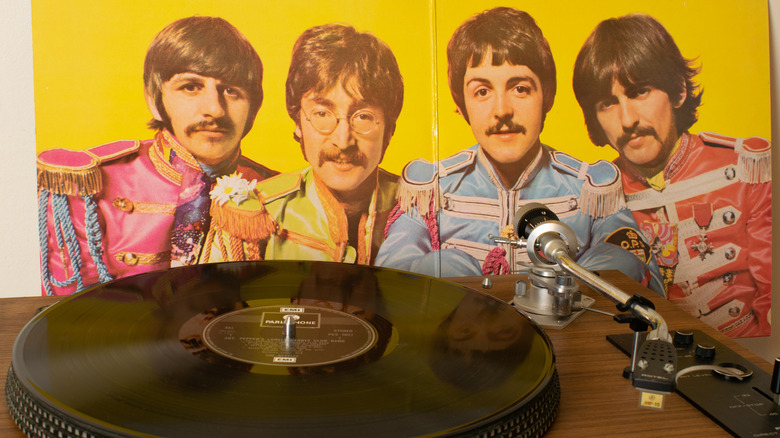The Real Reason The BBC Banned This Beatles Song
These days, the concept of a work of art being "banned" is downright ludicrous, particularly in the United States, with its robust free speech protections. This is especially true when it comes to music — someone may produce a song that, for whatever reason (perhaps it contains too much vulgarity), isn't going to get any radio airplay, but the wide-open worlds of YouTube and streaming apps means that the song will always have a home. The government is sure as heck not going to ban it.
However, things were different in the 1960s than they are now, and indeed, in the United Kingdom at the time, the concept of "free speech" meant a lot less than it does to 2021 Americans, at least when it comes to music. According to Far Out Magazine, the British Broadcasting Corporation ruled over Old Blighty's airwaves at the time "with an iron fist," and anything that didn't pass muster didn't get airplay, period. There was no internet, either, so the only way the performers could propagate their music was through record sales. And as it turns out, not even the Beatles were immune to the heavy hand of British government censorship of the radio airwaves.
The BBC wasn't feeling A Day In The Life
By the late 1960s, the Beatles had changed direction both musically as well as in their public image and in their personal lives. Long story short, they'd discovered drugs — all of the drugs — and weren't above incorporating drug references into their music, as Showbiz Cheat Sheet notes. This is apparent in the song, "A Day In The Life," the final track of the 1967 album "Sergeant Pepper's Lonely Hearts Club Band."
The track contains the line, "I'd love to turn you on," which was clearly and unambiguously a drug reference, specifically to LSD and to the "turn on, tune in, drop out" mantra of its users. Paul McCartney admitted as much, although he also noted that the meaning could be taken sexually as well.
The British Broadcasting Corporation certainly saw it as a drug reference. As Far Out Magazine notes, then-BBC director of sound broadcasting, Frank Gillard, sent a letter to the band explaining that he was fully aware of the drug reference, and he wasn't going to allow it, lest British teenagers hear the song and decide to take up doing drugs en masse. "The recording may have been made in innocence and good faith," Gillard wrote, "but we must take account of the interpretation that many young people would inevitably put upon it ..."
Per Far Out Magazine, McCartney admitted that the whole thing was designed to be provocative and get a reaction. It worked.

